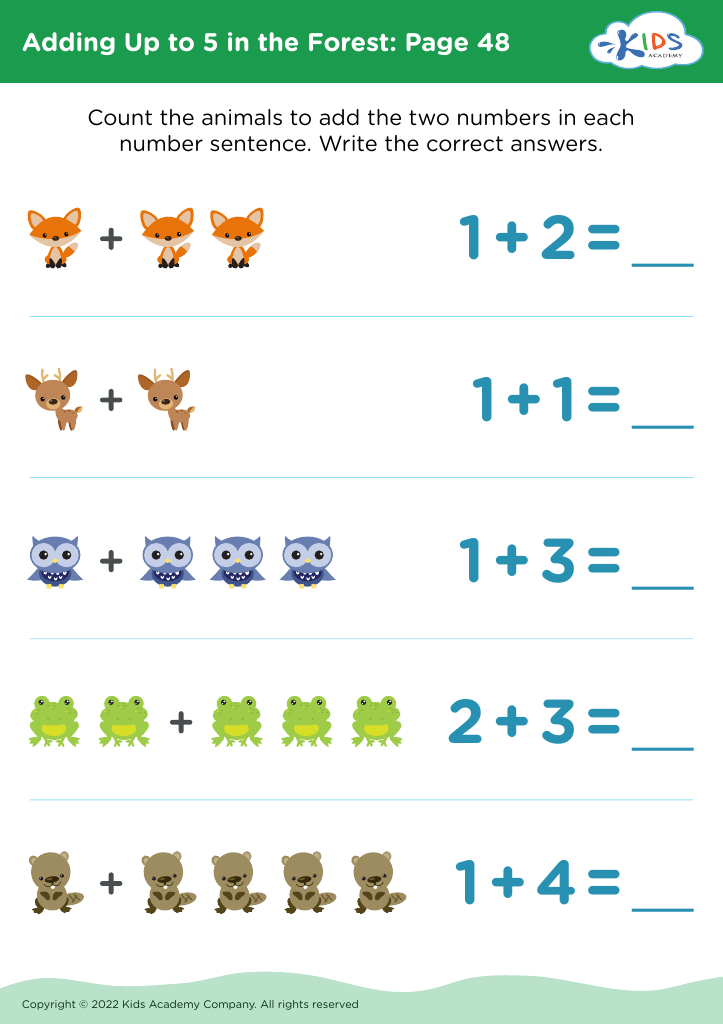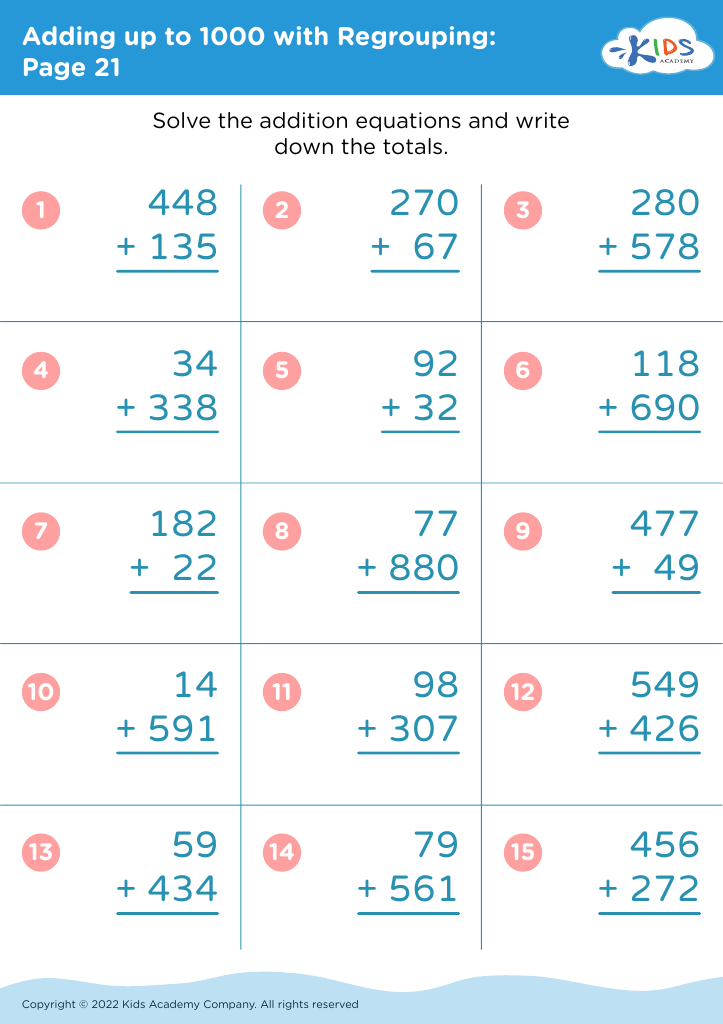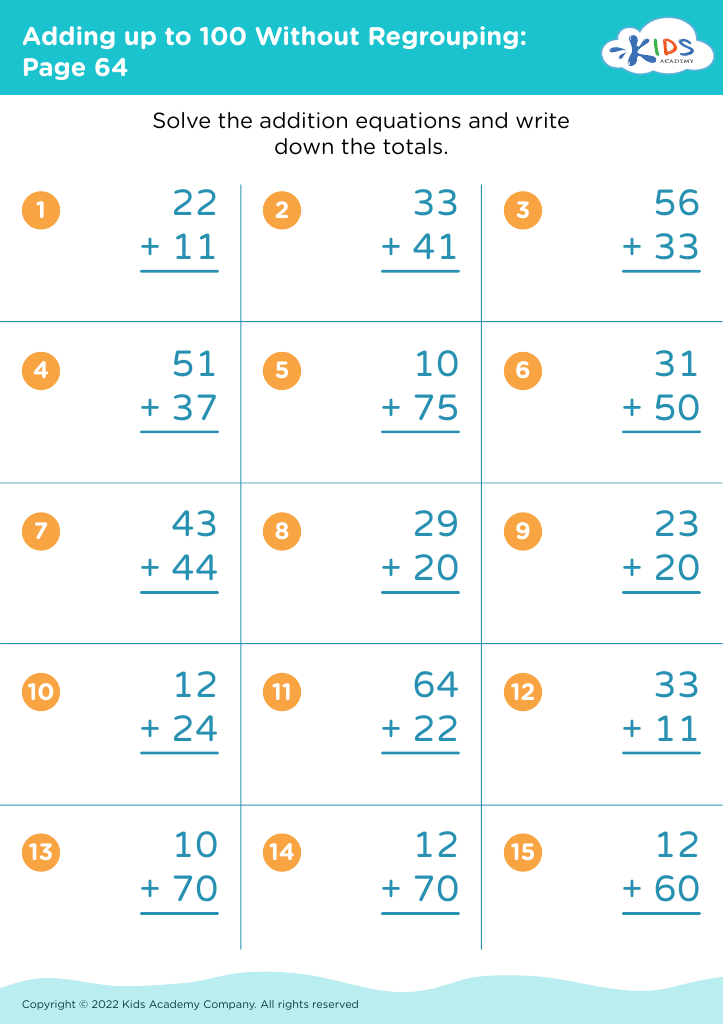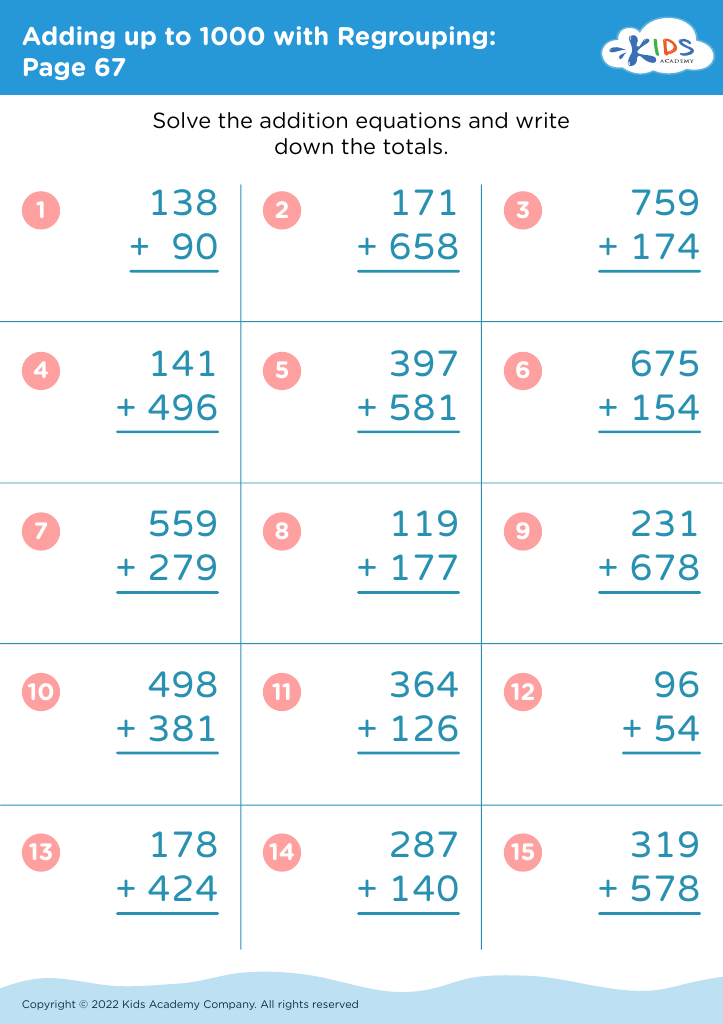Number identification Addition & Subtraction Worksheets for Ages 5-8
5 filtered results
-
From - To
Discover our engaging Number Identification Addition & Subtraction Worksheets designed specifically for children aged 5-8! Tailored to support early learners, these worksheets combine foundational math skills with interactive activities to help kids recognize numbers while mastering addition and subtraction. Each worksheet features vibrant illustrations and simple problems that keep young minds intrigued and motivated. Perfect for home and classroom use, our resources encourage independent learning, enhance problem-solving abilities, and ensure your child builds confidence in their math skills. Start your child's math journey today and watch them flourish as they learn to identify numbers and perform basic operations with ease!
Number identification, addition, and subtraction are foundational skills that significantly impact a child's mathematical development during ages 5 to 8. Ensuring that children master these concepts lays the groundwork for future learning, as a solid grasp of numbers and basic operations is essential for more complex mathematics.
Parents and teachers should care about number identification because recognizing and understanding numbers facilitates various aspects of daily life, from telling time to handling money. This skill fosters independence and confidence in young learners. Addition and subtraction, on the other hand, are critical for developing problem-solving abilities. When children learn to perform these operations, they enhance their critical thinking skills and learn how to approach challenges methodically.
Moreover, engaging children in number recognition and basic arithmetic stimulates cognitive development and encourages their natural curiosity. It creates a playful yet structured environment to explore concepts, increasing engagement and retention. Furthermore, consistent practice in number identification and simple calculations supports children’s academic performance in later grades.
Ultimately, investing time and resources in these foundational skills equips children with essential tools for life-long learning, making parents and teachers crucial in fostering this development.
























